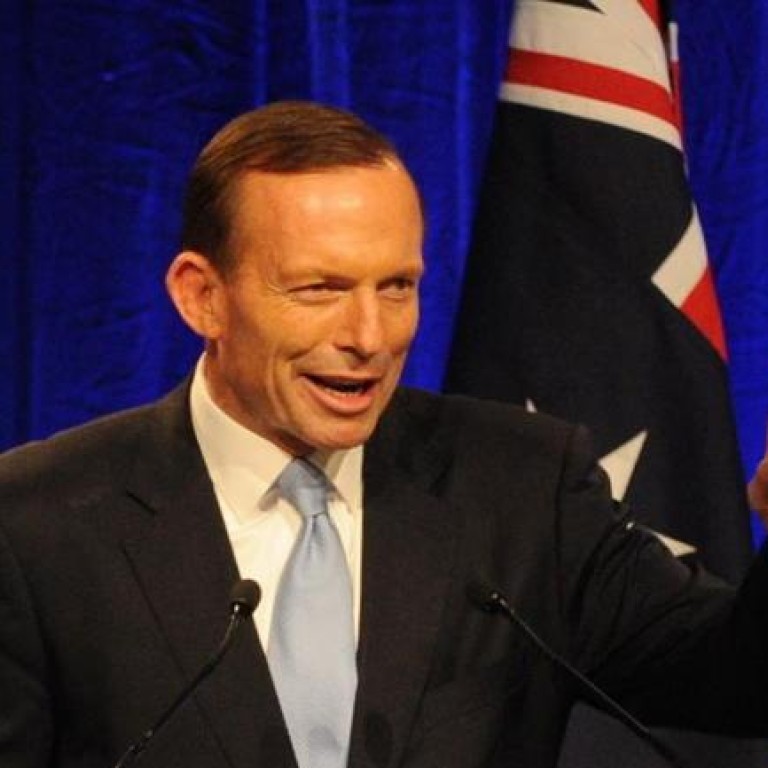
Tony Abbott sweeps into power in landslide win in Australian election
Conservative challenger Tony Abbott declared Australia "under new management" after Prime Minister Kevin Rudd conceded defeat in Australia's national election and said he would step down as Labor leader.
Conservative challenger Tony Abbott declared Australia "under new management" yesterday after Prime Minister Kevin Rudd conceded defeat in Australia's national election and said he would step down as Labor leader.

Abbott, a former trainee Catholic priest, boxing enthusiast and monarchist, capitalised on the infighting that saw Rudd oust Julia Gillard as Labor leader in June, three years after she did the same to him.
"I declare that Australia is under new management and is once again open for business," the jubilant 55-year-old told cheering supporters in Sydney.
"I now look forward to forming a government that is competent, that is trustworthy, and which purposefully and steadfastly and methodically sets about delivering on our commitments to you, the Australian people. I am both proud and humbled as I shoulder the duties of government," he added. Abbott is expected to be sworn in officially by Governor General Quentin Bryce this week.
Known as a political hard man of the Liberal Party, unafraid of speaking his mind and occasionally tripping up on a gaffe, he has rebuilt his image and ran what was widely seen as a disciplined election campaign. He made a paid parental leave scheme his "signature" policy, while pledging to scrap the carbon tax and make billions of dollars of savings to bring down debt.
Rudd said Labor had "fought the good fight" in a speech conceding defeat some 100 minutes after the polls closed. Addressing supporters in Brisbane, he wished his rival well in the "high strain" lifestyle that comes with prime ministership.
"As prime minister of Australia, I wish him well in the high office of prime minister of this country," he said, adding that he would quit as party leader.
"I will not be recontesting the leadership of the parliamentary Labor Party. The Australian people I believe deserve a fresh start with our leadership."
Employment and Workplace Relations Minister Bill Shorten is seen by the Australian media as favourite to take over.
Others in the running could be deputy leader Anthony Albanese, Treasurer Chris Bowen and Immigration Minister Tony Burke.
Health Minister Tanya Plibersek said Labor had only itself to blame for defeat.
"The clear take-out from this definitely is that disunity is death and we are not disciplined enough," she said.
Rudd struggled for traction after toppling Gillard, Australia's first woman prime minister, in a bitter party room coup just weeks before calling the election.
Capitalising on Labor's fragmenting base was eccentric billionaire Clive Palmer, best known for building a replica of the Titanic, who polled strongly in his native Queensland.
Palmer was set to be elected to the House of Representatives and unseat the conservative incumbent in a shock result after a deep-pocketed populist campaign in the Sunshine Coast district of Fairfax.

Hong Kong and Macau - home to about 90,000 Australians - has the second-biggest group of overseas voters behind London.
"There's a big concentration of Australians, particularly in London and Hong Kong, and our experience has been that they like to come out and vote on election day," said Australian consul-general Paul Tighe.
